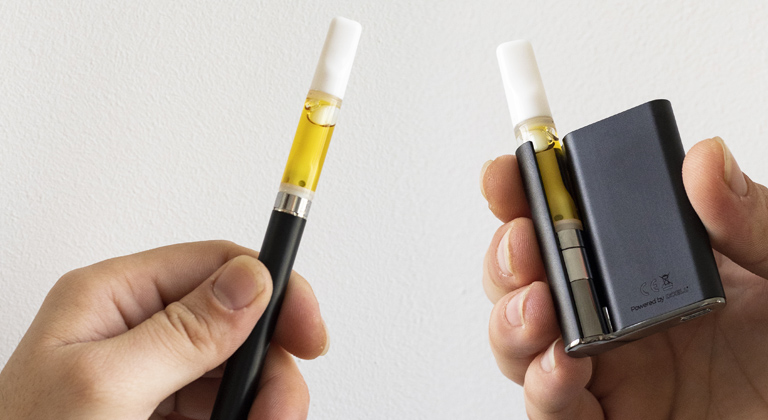Spain has played a very important role in the cannabis industry, especially in the first decade of the 2000s. The creation of cannabis clubs and the widespread practice of home growing set the gears in motion for a thriving industry eager for progress and expansion.
However, although many people arrived at the conclusion that home growing cannabis was legal in Spain, this has not been the case. The Spanish legal framework has been characterized by being particularly confusing and full of gray areas, something that has led other countries in Europe (and the rest of the world) to take the lead in opening up new legal markets.
Now it seems that Spain finally wants to catch up on this matter and is taking its first steps to regulate medicinal cannabis, a measure that responds to the growing demand for evidence-based therapeutic alternatives with cannabis.
This has sparked debate on how to effectively regulate cannabis for medicinal purposes, a discussion in which various points of view arise from the medical and scientific community, political groups, as well as activists and patients.
What implications would the new regulation have? Under what criteria will patients be able to access cannabis-based treatments? These and other questions, such as how Spanish regulation will align with global trends, are what we’re going to address next. Keep reading!
Historical Background of Medicinal Cannabis in Spain
The recreational use of cannabis has a high rate in Spain, although it remains illegal to date. It’s estimated that approximately 22% of young people between the ages of 15 and 24 use cannabis for this purpose.
The side effects of abusive cannabis consumption from the black market have been the main argument for applying legal measures when it comes to growing and consuming cannabis in the country, including cultivation and consumption for medicinal purposes. Historically, legislation has left patients who could benefit from medicinal cannabis treatments with no options, pushing them in many cases to resort to the black market.
However, both patient associations and activists for the regularization of cannabis and its cultivation argue that a legal framework would eliminate many risks associated with cannabis consumption. It could ensure a safer product (with strict controls on pesticides and products that can be used during cultivation) and provide more information about its content, such as cannabinoid and terpene percentages, along with greater education focused on risk prevention.

The Exponential Increase in Cannabis Production Licenses in Spain
Despite medicinal cannabis not being legal in Spain, in recent years (from 2019 to the present), there has been a significant increase in legal national cannabis production. We’re talking about licenses granted by the Spanish Agency of Medicines and Medical Devices (AEMPS) to 22 public and private entities that meet certain requirements for legal production within the territory.
However, this production is destined for exportation to those countries that have taken the lead and have legalized cannabis for medicinal use in recent years, while it remains prohibited in Spain.
According to data from the latest report by the International Narcotics Control Board (INCB), in 2021 the forecast for legal cannabis production in Spain was 600 kilograms, but by 2023 it increased to 9,000 kilograms. Spanish production forecasts will break records this year, as reported by the AEMPS, with an expected amount of 23.4 tons of cannabis, figures that place Spain on the list of countries with the highest international production.
The increase in production and issued licenses highlights the need to establish a regulatory framework for medicinal cannabis in Spain.
Furthermore, according to a report by Prohibition Partners, (one of the leading data consultancy firms in the international cannabis industry), despite this exponential increase in medicinal cannabis production, clinical trials to study the effects and dosages for patients are not keeping pace, not even close. While in other countries, this type of research has increased significantly (by 650%), in Spain, not even 1% of these investigations have been conducted.
The frustrating wait for patients to access medicinal cannabis
The data we have just mentioned serves to understand the frustration of thousands of Spanish patients who have been waiting for decades for regulation that would allow them to access medicinal cannabis legally and safely, a product their own country produces. The most striking aspect is that Spain is the only country in the world that produces large quantities of medicinal cannabis legally but does not have a legal framework for its use.
Among the significant increase in licenses granted for cultivation (150% more compared to 2019) is Linneo Health, one of the leading companies in medicinal cannabis production in Spain, owned 60% by the British fund GHO and 40% by the investor Juan Abelló, the Spanish billionaire also known for leading global morphine production.
One of the main complaints of Spanish patient associations regarding medicinal cannabis regulation is that, in many cases, such as those patients facing chronic pain or stress and insomnia issues, the treatments available in Spain are based on opioids and benzodiazepines, substances known to have significant side effects.
In fact, Spain is one of the countries with the highest consumption of anxiolytics, medications commonly prescribed to treat cases of anxiety disorders, depression, and insomnia, among others. Patient associations demand access to a healthier alternative, as they claim to achieve better pain relief results with cannabis than with opioids in some cases, and furthermore, it is a much safer substance with far fewer side effects.

The Regulation of Medicinal Cannabis in Spain: A Near Reality?
Currently, Spain finds itself at a crucial moment that could mark a before and after in the legal status of medicinal cannabis. Supported by an ongoing legislative process that seems promising, access to cannabis treatments appears to be closer to reality than ever before.
This process began in June 2022 when a subcommittee presented a proposal to establish a legal framework for medicinal cannabis in the country.
This represented a significant advancement in Spanish healthcare policy to date, and on June 27, 2022, the Congress approved a report endorsing this proposal with the support of PSOE, Podemos, Ciudadanos, PdeCAT, and PNV, while PP and Vox voted against it, and ERC and Bildu abstained. From that moment, a deadline of six months was set to finalize the new regulations, a deadline that expired in December 2022 without materialization.
One year later, on January 26, 2024, the Minister of Health, Mónica García, publicly announced her intention to legalize medicinal cannabis within this year, as well as intending to expand smoke-free spaces and regulate vaping.
It seems that the roadmap for this regulation will be based on the conclusions presented by the subcommittee in 2022, as well as on the draft presented by the AEMPS, which is being reviewed to establish the details of this new legal framework, which are still to be clarified.
What will Legal Access to Medicinal Cannabis be Like in Spain?
Although there is still no definitive resolution on the details of the bill, it has already been anticipated that medicinal cannabis can only be prescribed by a medical professional. In addition, approved cannabis products for use will be distributed, as expected, only in hospital pharmacies (for now), and will be intended to treat specific conditions such as multiple sclerosis, epilepsy, side effects of cancer treatments, and chronic pain (including neuropathic pain).
The Spanish Agency of Medicines and Medical Devices will be responsible for supervising the production, distribution, and dispensing of cannabis-derived products, as well as ensuring that they comply with quality and safety standards.
With these measures, it seems that Spain seeks to align itself with the global trend of regulation and establish a model similar to that of some European countries like Germany.
Furthermore, the political party Sumar has expressed its support for regulating recreational cannabis use in the future as well, a comprehensive regulation that is already a reality in an increasing number of countries worldwide.

Future Perspectives in the Spanish Legal Framework: the Debate is Ongoing
The possible legalization of medicinal cannabis in Spain has sparked a wide-ranging debate in which a broad spectrum of political and social positions collide.
On one hand, proponents of regulation assert that it will provide long-awaited access for patients to cannabis treatments in a safe and controlled manner, improving their quality of life and allowing for greater research into the medical uses of plant compounds. Additionally, they argue that it is the pathway to eliminate the black market and the existing mafias within it.
On the other hand, critics of this measure have expressed concern that the legalization of medicinal cannabis may be a facade for recreational use, and the potential implications this could have for public health. An argument that many find difficult to defend, as current cannabis consumption in Spain is among the highest in Europe.
Meanwhile, activist organizations in favor of home cultivation would not agree with the dispensation format intended to be implemented and advocate for patients’ right to grow their own cannabis. According to their opinion, this would increase access to treatments and serve as a tool for empowerment and health management, reducing the risk of monopolies controlled by large corporations.
Furthermore, the inclusion of home cultivation as an integral part of the plan would represent recognition of the decades-long effort and struggle of many patients to have their right to legal and safe cannabis treatment recognized.
Final conclusions
Certainly, this new legal paradigm presents challenges and opportunities; the legalization of cannabis for medicinal use in Spain is news that many have been waiting for decades. A milestone in the country’s evolution in terms of health and social well-being, which we hope will boost scientific research into plant compounds for the treatment of various diseases.
Undoubtedly, this measure brings with it much debate on topics such as scientific research, home cultivation, or a future legal framework for recreational use, and at the center of all this discussion, what should be the common goal: improving the lives of thousands of patients.
We invite you to continue exploring, debating, and contributing your opinion in the comments below and on Cali Terpenes’ social networks. Participate in this dialogue; let’s build a greener and fairer future together.









